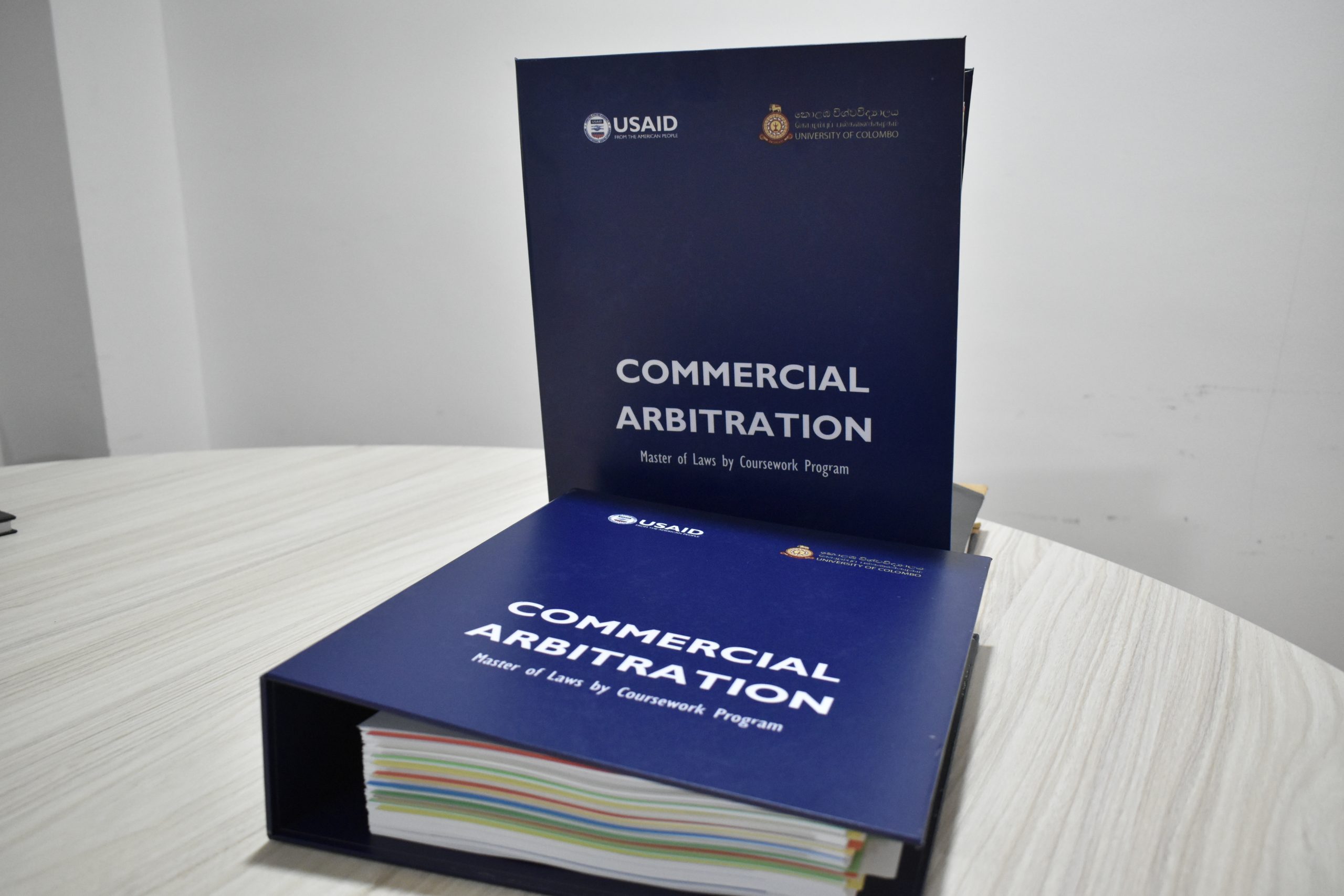On July 4, 2024, the University of Colombo officially announced the completion and handover of the Commercial Arbitration Course, developed by the Rule of Law Collaborative (ROLC) as part of its LLM program in Commercial Law. This innovative course, developed by ROLC’s Deputy Executive Director Steven Austermiller, was created in collaboration with local bar and academic experts and included faculty training to ensure its effective delivery.
Designed to provide a comprehensive and practical survey of commercial arbitration, the course employs modern, interactive learning methodologies, including research, debate, group work, discussion, and role-playing exercises. These approaches encourage students to take ownership of their learning, making the subject both accessible and impactful. The course culminates in two capstone activities:
- A presentation proposing potential reforms to Sri Lanka’s arbitration laws.
- A mock arbitration, simulating real-world dispute resolution.
By integrating local expertise, the course ensures that students gain a deep understanding of how Sri Lankan courts and legal practitioners interpret and apply arbitration laws. This localized focus equips graduates with the practical skills needed to navigate arbitration proceedings effectively in their own legal careers.
This initiative is a critical step in Sri Lanka’s broader judicial and economic reform efforts that will strengthen commercial arbitration and reduce court backlogs, provide a stable environment for foreign investment, and further professionalize the legal sector. This course represents an important step toward making arbitration a viable and effective tool for improving Sri Lanka’s legal and commercial landscape—benefiting international investors, local businesses, and citizens alike.

